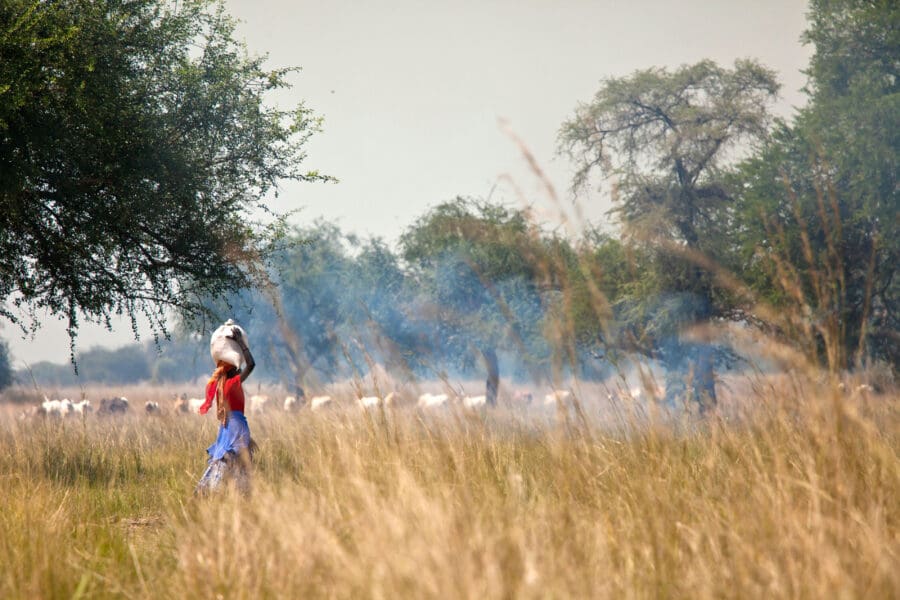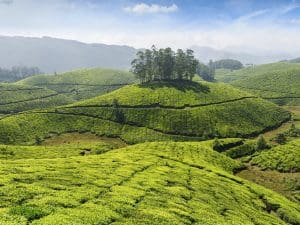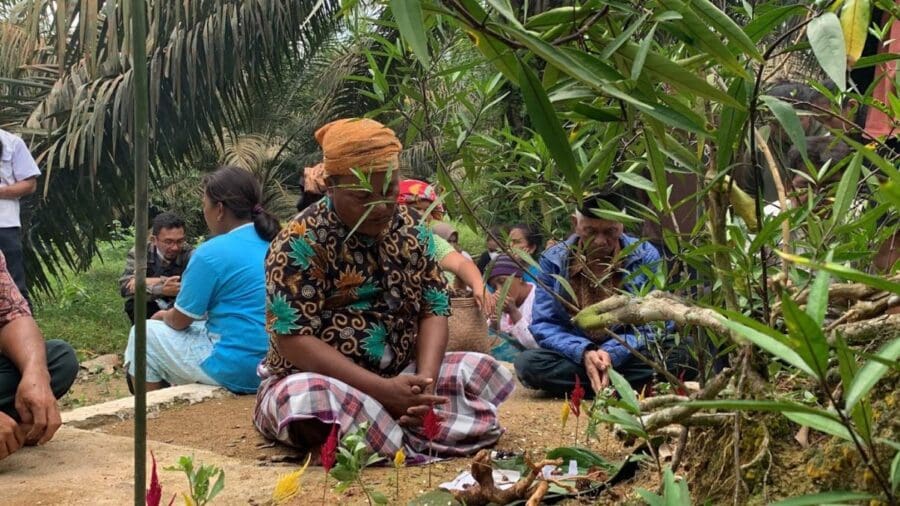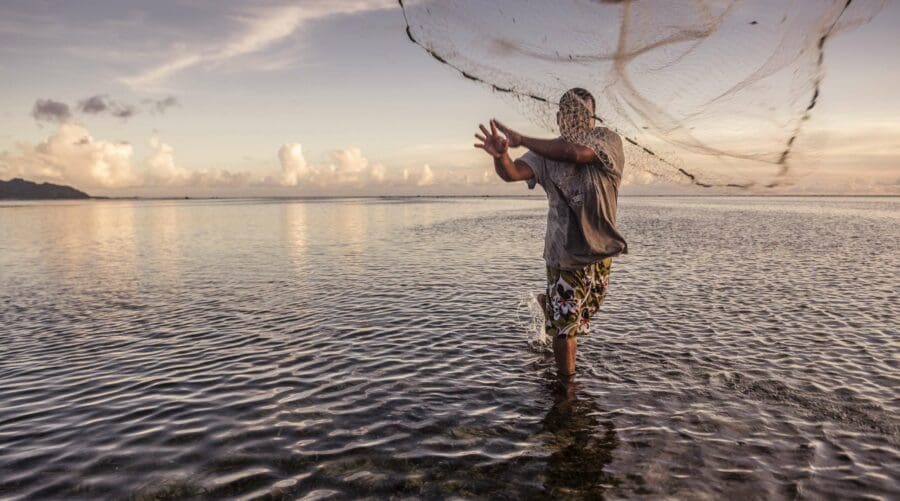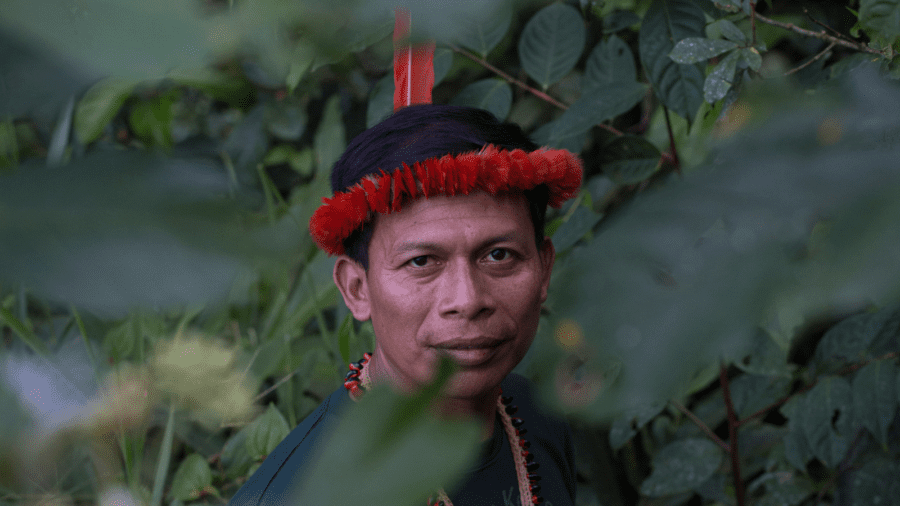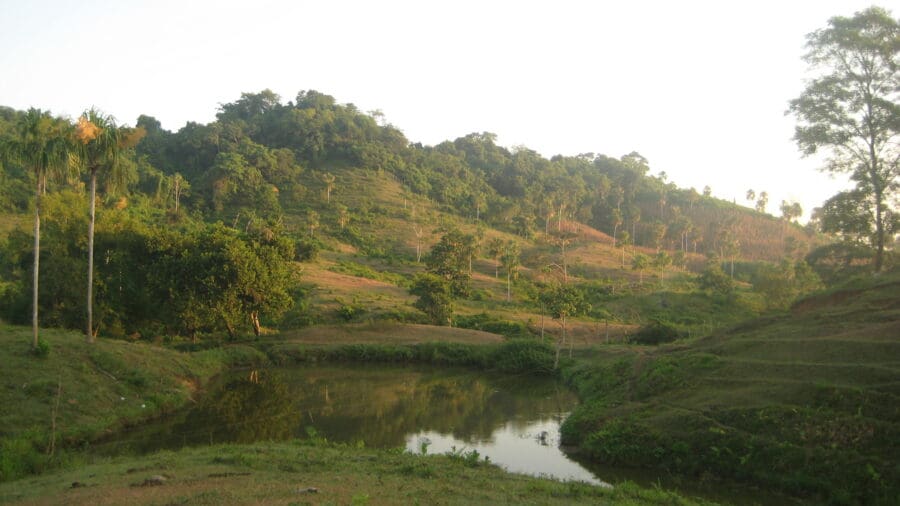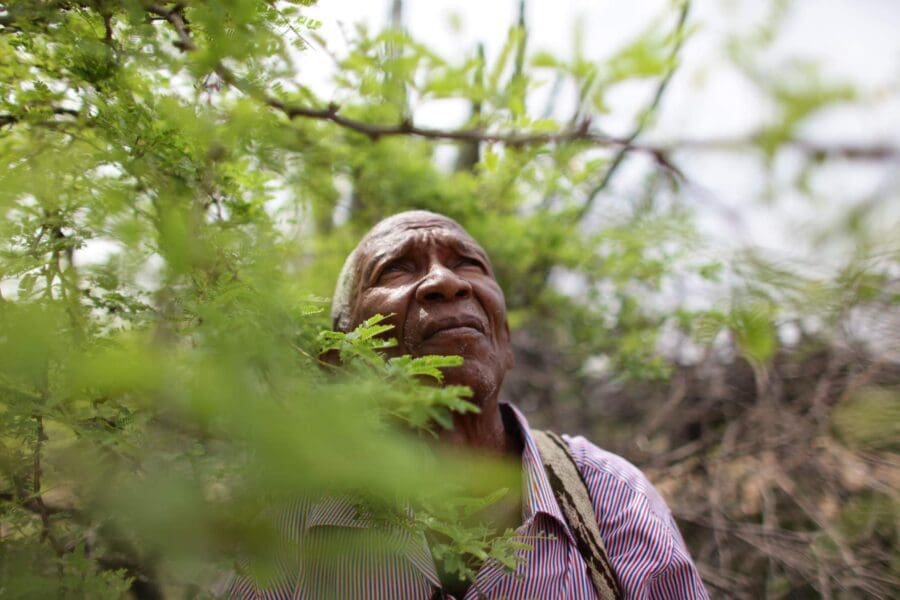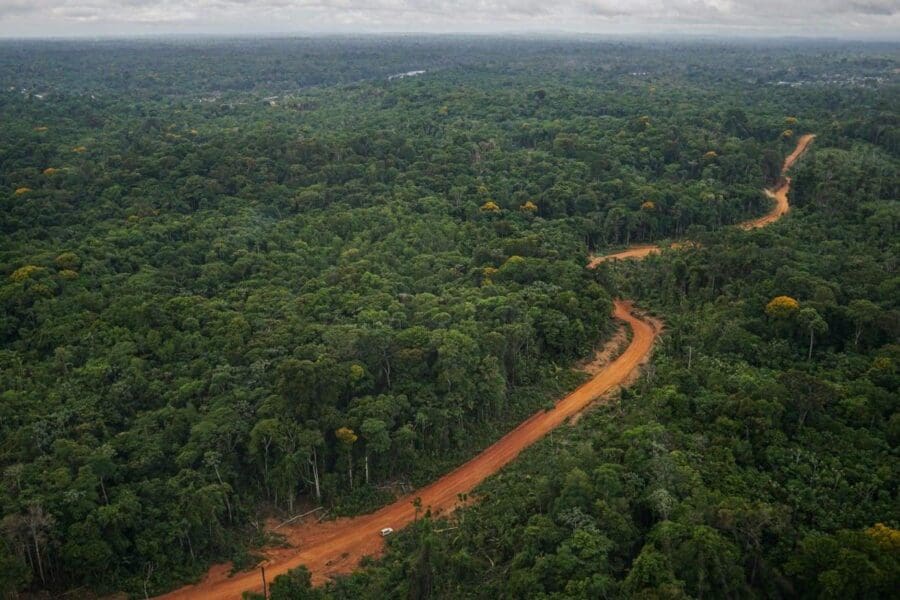As the negative consequences of human-induced environmental and social changes are becoming increasingly obvious, there is a growing recognition that “status quo” approaches to resource…
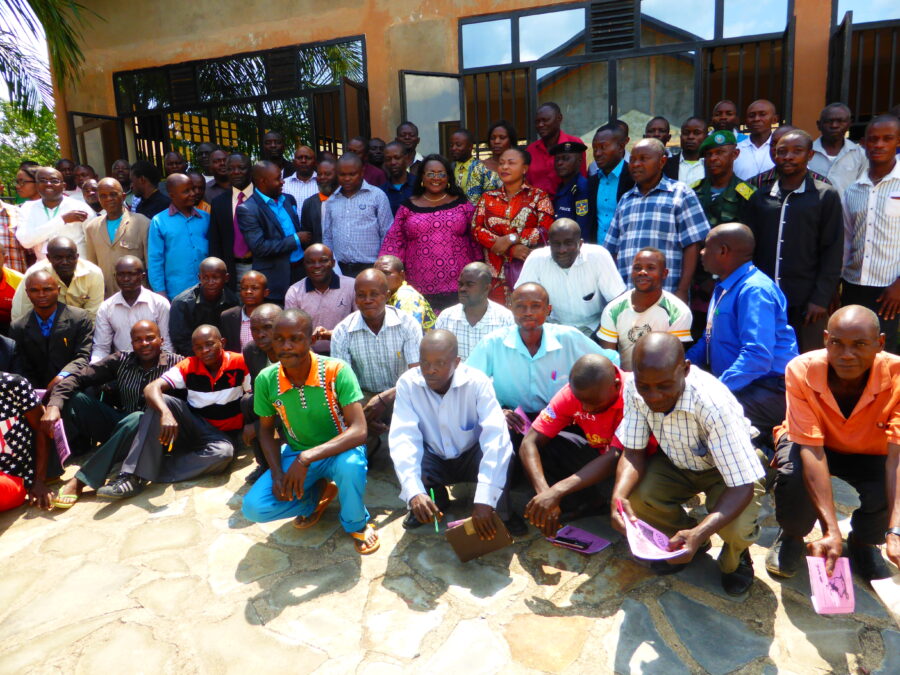
An unprecedented community forestry initiative in DRC
Indigenous and community organizations often find that progressive laws on land tenure do not always translate into progress on the ground. Even in the Democratic Republic of Congo (DRC), where forestry laws allow for community ownership and management of land, there are major obstacles hindering the realization of customary forestry rights.
Strengthening community forest rights – a key front in the battle against climate change
Indigenous peoples and other local communities play a vital role when it comes to mitigating the impact of climate change. But despite inhabiting 50 per cent of the world’s land, these communities legally own just 10 per cent of it. As a result, civil society groups are calling on governments around the world to scale up the protection of customary land rights.
For Indigenous Communities, The Fight Against Climate Change Is a Fight For Human Rights
For two decades, indigenous peoples have engaged with the UN climate talks, pointing out that the world’s climate mitigation strategies have omitted their knowledge systems and, in some instances, actively harmed and displaced their communities. This year, indigenous representatives managed to make important strides, including gaining approval of a platform that finally opens the door for their active participation in global climate negotiations.
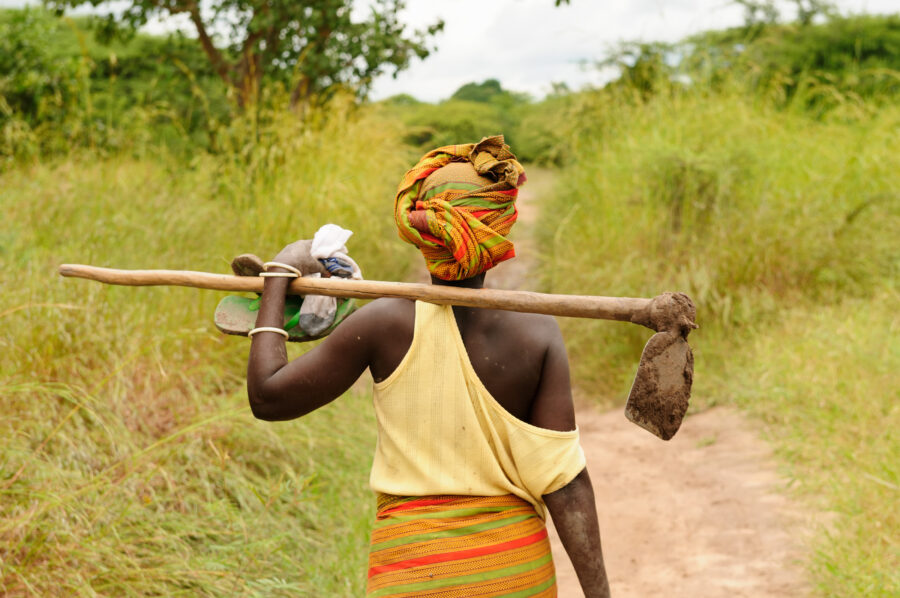
Indigenous Peoples, communities, and women achieve historic gains at COP23—but governments still have work to do
The creation of platforms to acknowledge and address the role of Indigenous Peoples, local communities, and rural women may represent a crucial step toward addressing the disparity between the lands Indigenous Peoples and communities protect and depend on and the legal recognition of their rights. These communities will have a formal platform at future climate talks to exchange knowledge, influence policy, and press for recognition of their rights before world leaders.
$6.5bn afforestation fund pits forest officials against tribals yet again
Testimonies of affected tribespeople and activists point to a conspiracy that forest departments are using afforestation as a tool to exert control over forest lands traditionally used by tribespeople.
New wildlife plan backs Adivasi rights in tiger reserves despite environment ministry stalling them
The National Wildlife Action Plan released by India’s environment ministry has asked for the speedy recognition of the forest rights of communities living inside tiger reserves, months after the ministry itself stalled the process.
Tribal women lose food basket to commercial timber species: Study
NEW DELHI: A new report on government’s plantation drives has found that most of the plantations are carried out on forest areas which are already supporting native trees and vegetation. These plantations are in fact replacing forest trees with commercial timber species such as teak, eucalyptus, bamboo and others. Moreover, the plantations are often encroaching on forest dwellers’ land in violation of the forest rights act which gives forest communities the right to use forest resources, to conserve and to live in forests.
Indonesian president recognizes land rights of nine more indigenous groups
The Indonesian government has relinquished control over nine tracts of forest to the indigenous communities that have lived there for generations, President Joko “Jokowi” Widodo announced at a recent conference on land tenure in Jakarta.
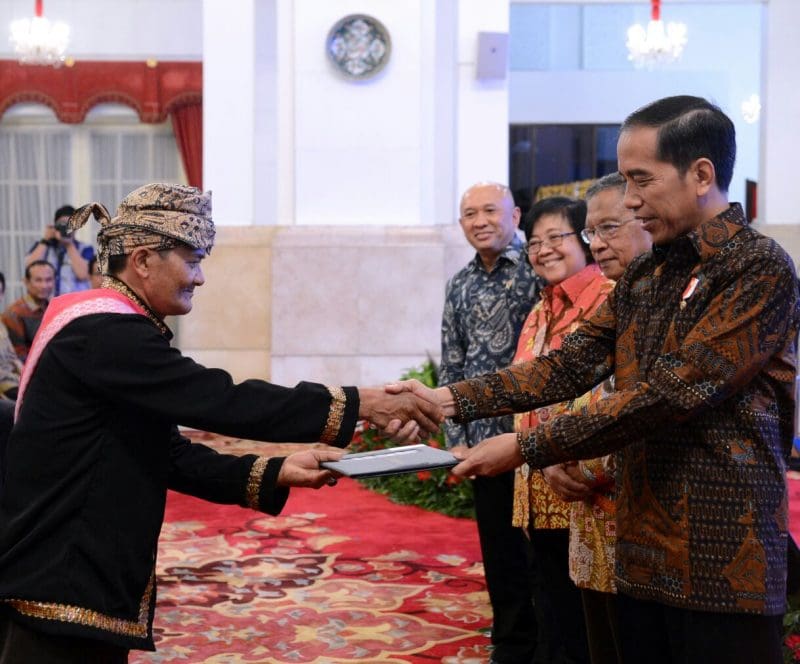
Reflections from the 2017 Tenure Conference in Indonesia
Both the conclusions of the conference and the collaboration that went into organizing it attest to the willingness of the current government and civil society to collaborate toward these goals. In the face of globalization and efforts to promote economic growth in Indonesia, full recognition of the land and forest rights of local and adat communities remains of the utmost importance. There is hope that this collaborative effort represents a step in the right direction toward securing the land rights of adat and local communities across Indonesia.
Women as Agents of Climate Change Action
Arguably the biggest problem facing humanity—climate change—has a surprising solution: legally recognize and enforce the land rights of rural women in customary tenure systems. This November, it is essential that the world’s nations gathering in Bonn for the United Nations’ annual climate change conference (COP23) do not lose sight of this tremendous opportunity.
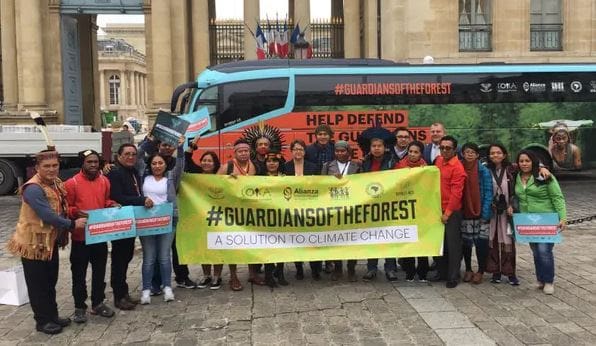
‘For us, the land is sacred’: on the road with the defenders of the world’s forests
Alain Frechette of the Rights and Resources Institute said this was the most cost-effective way to reduce emissions. “Community-owned land sequesters more carbon, has lower levels of deforestation, greater biodiversity and supports more people than public or privately owned forest,” he told the gathering of indigenous leaders, supporters and journalists.

